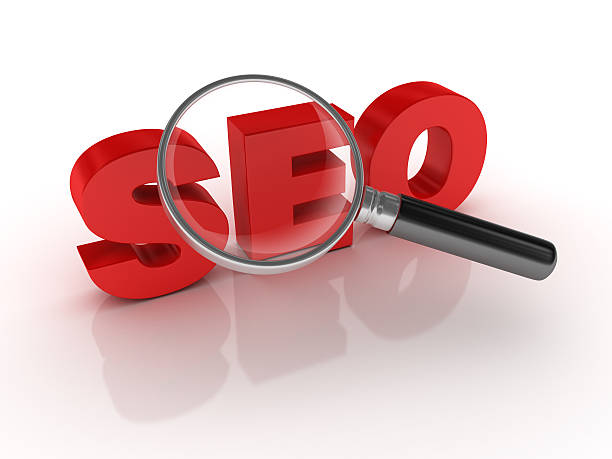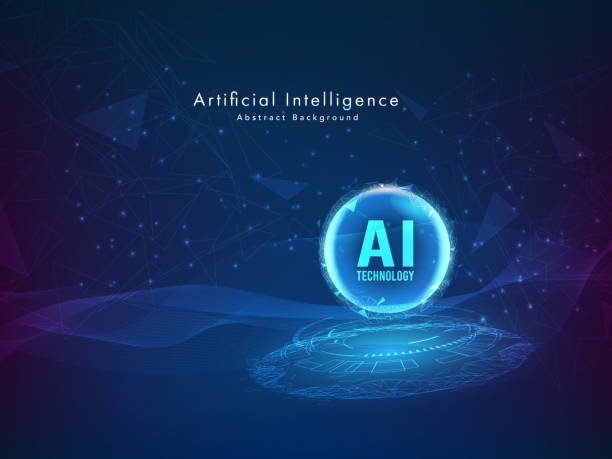Introduction to SEO and its Importance

#SEO or Search Engine Optimization is an explanatory and educational process for improving the visibility of a website or web page in unpaid (organic) search engine results.
This process involves understanding how the algorithms of Google and other search engines work, and then adjusting the website’s content and structure to match these algorithms.
In today’s digital world, where competition for user attention is at its peak, the importance of SEO becomes more apparent than ever.
A strong SEO strategy can significantly increase your website’s organic traffic, which means more potential visitors, leads, and ultimately more customers.
Without adhering to SEO principles, even the best content and products may get lost among the vast amount of information available on the internet.
This is a long-term investment that brings sustainable and reliable results, unlike paid advertising whose results stop when the budget runs out.
Understanding the fundamentals of SEO is an essential step for any online business or blogger seeking success in the digital space.
Are you dissatisfied with the low conversion rate of visitors to customers on your e-commerce site?
Solve this problem forever with professional e-commerce website design by Rasaweb!
✅ Increase visitor-to-customer conversion rate
✅ Create an excellent user experience and build customer trust
⚡ Get free consultation
Types of Content and Their Role in Search Engine Optimization

#Content is the beating heart of any SEO strategy, and without high-quality and relevant content, SEO efforts will be ineffective.
Content can be produced in various forms, and each type serves a specific purpose.
Educational content, such as “how-to” articles or step-by-step guides, helps users solve a problem or learn something and answers frequently asked questions.
This type of content attracts users to the site and increases their retention rate.
Similarly, explanatory content clarifies complex concepts and can serve as primary sources for acquiring knowledge.
In contrast, thought-provoking or controversial content is produced with the aim of provoking interaction and sharing on social networks, which can send strong social signals to search engines.
News content covers recent events and developments and can quickly drive high traffic to a site, especially if it is timely and unique.
Analytical content, based on data and statistics, provides deep insights and is typically used by experts in the field, which can in turn help increase the site’s credibility.
Finally, entertaining content is designed to increase user retention time and create a positive experience for them, such as engaging videos, infographics, or quizzes.
Diversity in content production and the intelligent combination of these types is the key to success in optimizing for search engines.
On-Page SEO Factors and Techniques

#On-Page SEO refers to all actions taken within your website to improve its ranking in search results.
This part of optimization is entirely under your control and involves optimizing various page elements.
The first and most important step is specializing content and ensuring its quality and relevance to target keywords.
Keyword research, selecting appropriate keywords, and naturally using them in the text, page title (Title Tag), meta description, headings (H1-H6), and URLs are crucial.
Also, optimizing images using the Alt Text attribute (alternative text) and compressing them to increase page loading speed is very important.
The internal linking structure of the website also plays a key role; linking to related pages within the site helps search engines better understand your site’s structure and assists users in finding the information they need.
Page loading speed, responsiveness (mobile-responsive design), and positive user experience (UX) are also important on-page SEO factors.
Search engines aim to provide the best experience to their users, so the more user-friendly your site is, the greater its chances of ranking higher in SEO results.
| On-Page SEO Element | Importance | Brief Description |
|---|---|---|
| Page Title (Title Tag) | Very High | The first thing seen in search results and contains main keywords. |
| High-Quality Content | Very High | Unique, comprehensive, and relevant content addressing user needs. |
| Meta Description | Medium | An attractive summary to entice clicks in search results. |
| Headings (H1-H6) | Medium | Structuring content for better readability and including keywords. |
| Images (Alt Text) | Low to Medium | Explaining images for search engines and accessibility. |
| Internal Linking | High | Connecting relevant internal pages to guide users and crawling bots. |
Off-Page SEO Strategies and Gaining Authority

#Off-Page SEO refers to activities performed outside your website to increase your site’s credibility and trust with search engines.
The most important factor in off-page SEO is link building (Backlink Building).
A backlink means links given from other websites to your site and acts as a vote of confidence in the quality and credibility of your content for search engines.
The higher the number and quality of backlinks, the more your site’s authority increases.
But the important point is the quality of backlinks, not just their quantity.
Backlinks received from reputable, relevant, and powerful sites have much more value than spammy or irrelevant links.
Specialized strategies for acquiring backlinks include creating linkable assets, engaging in social media to increase content sharing, participating in relevant forums, digital PR, and publishing guest articles on other sites.
Social media activity, while not directly affecting SEO rankings, can help increase content visibility and consequently attract natural backlinks.
Guidance and the use of backlink analysis tools to examine competitors’ link profiles can also identify new link-building opportunities.
Off-page SEO is a crucial aspect of a comprehensive SEO strategy that helps your site stand out in the competitive internet landscape.
Tired of losing customers due to poor e-commerce website design? With Rasaweb, solve this problem forever!
✅ Increase sales and visitor-to-customer conversion rate
✅ Smooth and attractive user experience for your customers⚡ Get free consultation
Technical SEO and Site Structure Optimization

#Technical SEO deals with the technical aspects of your website that affect its crawlability and indexability by search engines.
The main goal of technical SEO is to ensure that search engines can easily access, understand, and store your site’s content in their database.
This part of optimization requires more specialized knowledge and includes items such as site speed, mobile-friendliness, URL structure, Robots.txt file, XML sitemap, structured data (Schema Markup), SSL certificate (HTTPS), and fixing crawl errors.
Site loading speed, especially on mobile devices, is an important ranking factor for Google; users and search engines prefer fast sites.
The Robots.txt file guides search engines on which parts of the site to crawl and which to ignore, while the XML sitemap provides a list of all important pages on the site to search engines.
Using the HTTPS protocol ensures site security and is considered a positive factor for SEO.
Structured data helps search engines better understand your content and display it more attractively in search results (like Rich Snippets).
Regularly reviewing Google Search Console reports and fixing any technical issues is an integral part of technical SEO for improving website performance and increasing SEO rank.
Keyword Research: The Foundation of Every SEO Campaign

#Keyword Research is the backbone of every successful SEO strategy.
This process involves identifying the words and phrases your target audience uses in search engines to find your information, products, or services.
Without a proper understanding of keywords, all your optimization efforts might be ineffective.
The purpose of this explanatory section is to guide you in finding the right keywords.
The steps of this research include brainstorming, using keyword research tools (such as Google Keyword Planner, Ahrefs, SEMrush), analyzing competitor keywords, and examining long-tail keywords.
Long-tail keywords usually have lower search volume but offer higher conversion rates, as the user’s search intent is more specific in them.
The importance of keyword research goes beyond merely finding high-volume phrases; it helps you understand your users’ needs and questions and produce content that truly answers them.
A smart SEO strategy focuses on balancing highly competitive keywords and less competitive long-tail keywords.
Continuously updating keyword research and monitoring changes in user search behavior is a vital part of maintaining rank in SEO, as search patterns are constantly evolving.
The Role of Content in SEO: Creation and Optimization

#Content is king in SEO, and without high-quality and relevant content, even the best optimization techniques will not yield results.
Content creation in SEO goes beyond writing words; it is a specialized and educational process that involves understanding the audience, conducting keyword research, and providing valuable information in an engaging way.
Content that engages users and answers their questions not only improves your ranking in search engines but also increases your credibility as an authoritative information source.
Creating thought-provoking content or content that addresses users’ informational needs can lead to lower bounce rates and longer dwell times on the page, both of which are positive signals for SEO.
Furthermore, creating entertaining content such as infographics, videos, or podcasts can help increase social sharing and acquire natural backlinks.
After creation, content optimization is also crucial.
This includes appropriate use of keywords in the text, headings, and meta descriptions, image optimization, internal linking, and improving content readability.
The analytical nature of content and its updating based on data and user feedback also play a significant role in maintaining ranking and content appeal for both search engines and users.
The ultimate goal is to produce content that is valuable to users and comprehensible and indexable by search engines.
| Content Type | Main Goal | SEO Benefits |
|---|---|---|
| Educational/Guide Articles | Answering questions, solving problems | Increased authority, reduced bounce rate, attracting targeted traffic. |
| Explanatory Content | Clarifying concepts | Authoritative information source, broad keyword coverage. |
| News/Events | Rapid information dissemination | Attracting immediate traffic, creating freshness signals for bots. |
| Thought-Provoking/Analytical Content | Creating engagement, deep insights | Increased social sharing, attracting natural backlinks, improved authority. |
| Entertaining Content | Increased user retention, positive experience | Reduced bounce rate, increased dwell time, improved engagement signals. |
Measuring and Analyzing SEO Performance

#Measurement and analysis of SEO performance are essential to ensure the effectiveness of implemented strategies and identify opportunities for improvement.
Without accurate data and analysis, any optimization effort will be guesswork.
Tools like Google Analytics and Google Search Console are invaluable resources for data collection.
Google Analytics provides insights into website traffic, user behavior, bounce rate, time spent on page, and traffic sources.
This data helps you identify popular content and user navigation paths.
Google Search Console also provides more specialized information about your website’s search performance, including the keywords users used to find you, your website’s position in search results, crawl errors, and page index status.
Analyzing this data allows you to understand which parts of your SEO strategy have been successful and which need correction.
Analytical reports should be reviewed regularly, and informed decisions for further optimization should be made based on them.
This is a cyclical process implemented with the goal of continuous improvement in SEO ranking and performance, serving as a key guide for anyone seeking progress in the field of SEO.
Did you know that 94% of a company’s first impression relates to its website design?
Rasaweb helps you create the best first impression by providing professional corporate website design services.
✅ Create a professional and trustworthy image for your brand
✅ Easier attraction of potential customers and improved online presence
⚡ Get free corporate website design consultation
Future SEO Trends and How to Prepare for Them

#SEO is a dynamic and evolving field, and what works today might be obsolete tomorrow.
Therefore, awareness of future trends and preparation for them are vital for sustained success in search engine optimization.
One of the most important future trends is voice search.
With the increasing use of voice assistants like Siri, Google Assistant, and Alexa, optimizing content to answer voice queries, which are usually longer and more conversational, is gaining increasing importance.
Furthermore, artificial intelligence and machine learning will play a more prominent role in search algorithms.
Algorithms like Google’s RankBrain and BERT have shown that search engines are increasingly capable of understanding the intent behind searches and providing more accurate results.
This means a greater focus on producing comprehensive, relevant, and high-quality content that addresses the user’s true intent.
News and fresh content have always held a special place in SEO, and this trend will continue.
User experience (UX) and Core Web Vitals are also gaining more importance as ranking factors.
This means that SEO goes beyond keywords, and optimizing for the user’s overall experience on your site, including speed, visual stability, and interactivity, will be crucial.
By following these analyses and preparing for changes, you can ensure that your SEO strategy remains effective in the future.
Avoiding Common SEO Mistakes

#Avoiding Mistakes in SEO is as important as correctly implementing techniques.
Even the smallest errors can severely harm your site’s ranking.
One of the biggest mistakes is over-optimization (Keyword Stuffing), which means excessive and unnatural use of keywords in content.
Search engines easily identify this technique and penalize the site.
Ignoring user experience (UX) and site speed is also a major error.
If users don’t have a good experience on your site, they will leave immediately, leading to a high bounce rate and damaging your SEO.
Ignoring mobile SEO in today’s world, where most searches are done via mobile, is an unforgivable mistake.
Spam linking or buying backlinks from untrustworthy sites can also lead to Google penalties.
Duplicate or low-quality content, lack of regular content updates, and not using Google Search Console’s guidance to identify and fix issues are other common mistakes.
Optimizing for SEO is a complex and continuous process that requires precision and attention to detail.
With a specialized approach and adherence to ethical white-hat SEO principles, these mistakes can be avoided, and sustainable success can be achieved.
Frequently Asked Questions
| Question | Answer |
|---|---|
| What is SEO? | SEO, or Search Engine Optimization, is a process to increase the quality and quantity of website traffic by improving the site’s ranking in natural (organic) search engine results, such as Google. |
| What are the main types of SEO? | SEO is divided into three main categories: On-Page SEO, Off-Page SEO, and Technical SEO. |
| What does On-Page SEO include? | On-Page SEO includes optimizing elements within the website, such as keywords, page title (Title Tag), meta description, content, URL structure, images, and internal links. |
| What is Off-Page SEO? | Off-Page SEO refers to activities outside the website that help improve its ranking, such as backlink building, social media marketing, and brand mentions. |
| What is Technical SEO? | Technical SEO focuses on optimizing the technical aspects of a website to help it be better crawled and indexed by search engines. This includes site speed, mobile-friendliness, site structure, sitemaps, and Robots.txt files. |
| What role do Keywords play in SEO? | Keywords are phrases that users enter into search engines. Proper and targeted use of relevant keywords in content and site elements helps search engines understand your page’s topic and display it for relevant searches. |
| What is a Backlink and why is it important? | A backlink, or inbound link, is a link from one website to another. Backlinks act as a “vote of confidence” from other sites for search engines and play a significant role in a site’s authority and ranking improvement, especially if they come from reputable sites. |
| What is the impact of quality content on SEO? | High-quality, relevant, comprehensive, and unique content not only attracts and retains users but also signals to search engines that your page is valuable. This helps improve rankings, reduce bounce rate, and increase user time on site. |
| Why is site loading speed important for SEO? | Site loading speed is an important ranking factor for Google. Faster sites provide a better user experience, have lower bounce rates, and are preferred by search engines. |
| Is SEO a one-time process? | No, SEO is a continuous and long-term process. Search engine algorithms are constantly changing, competition is increasing, and site content also needs updating. Therefore, SEO requires continuous monitoring, analysis, and optimization. |
And other services of Rasa Web Advertising Agency in the field of advertising
Smart Website Development: A dedicated service for digital branding growth based on real data utilization.
Smart Social Media: An innovative platform for improving customer behavior analysis with custom programming.
Smart Direct Marketing: A blend of creativity and technology for online growth through attractive UI design.
Smart Digital Branding: A combination of creativity and technology to increase sales through SEO-driven content strategy.
Smart Sales Automation: A fast and efficient solution for customer behavior analysis, focusing on precise audience targeting.
And over hundreds of other services in the field of internet advertising, advertising consultation, and organizational solutions
Internet Advertising | Advertising Strategy | Advertorial
Sources
What is SEO and How Does It Work?What is SEO? – A Comprehensive GuideWhat is SEO? Familiarity with Site SEOWhat is SEO and How Does It Work?
? To make your business shine in the digital world, Rasaweb Afarin Digital Marketing Agency, with expertise in professional website design, SEO, and comprehensive digital marketing strategies, paves your path to success.
📍 Tehran, Mirdamad Street, Next to Central Bank, Southern Kazeroun Alley, Ramin Alley, No. 6



